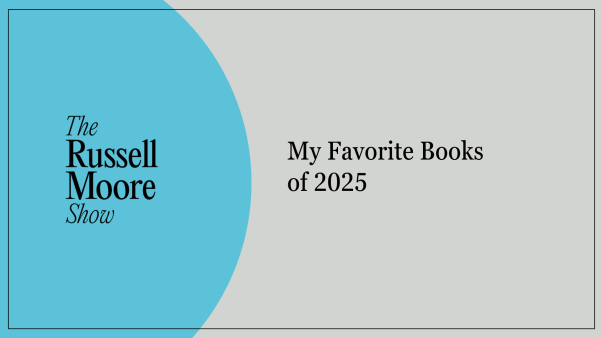Desmond Tutu is archbishop in the Anglican Church in South Africa and head of the Truth and Reconciliation Commission. In this article he gives his own account of the commission's efforts to work toward reconciliation in his native land. It is adapted from a speech he gave to the South African Press Club, October 1997.
Sadly, there are significant sectors in South Africa that have made it their business to denigrate, vilify, ridicule, and misrepresent the Truth and Reconciliation Commission (TRC) and its work. They decided long ago, in advance of any evidence to support their position, that the commission was a witch hunt directed at one particular community, that a certain group had already been condemned collectively, that it was really an instrument to advance the political interests of one political party, and that in its composition the TRC was heavily weighted in favor of those who supported that political party. Evidence to refute these allegations and accusations has not made any difference at all.
Almost all those who oppose the TRC benefited from apartheid. Nearly every party has criticized the TRC whenever our spotlight has revealed something embarrassing to that party. Most of the victims, black and white, have largely been supportive of the TRC process.
There have been those who have been vociferous in asserting that the TRC, far from promoting reconciliation, has in fact done the opposite. They say it has engendered resentment and anger, opened old wounds, and fostered alienation. I have challenged those who have made these assertions to provide evidence that would support their claims, because our experience has been the direct opposite. It has been almost breathtaking, this willingness to forgive, this magnanimity, this nobility of spirit. No, this process has made a contribution to reconciliation, to healing, as our mandate says. The TRC is required not to achieve unity and reconcile our nation—it is required to promote, to contribute to it.
Let us look at some instances. In Bisho [the capital of the homeland Ciskei], some former Ciskei Defence Force officers testified about the Bisho massacre [where 29 people were killed and as many as 200 were injured in a 1992 march to protect political repression; the Ciskei Defence Force had opened fire when ANC demonstrators left the planned route and ran toward the city center]. One of the officers had already alienated the people with his insensitive tirade. Then another confessed his part and asked for forgiveness. In the audience were people who had been wounded in that incident, people who had lost loved ones, but when that white army officer asked for forgiveness they did not rush to strangle or assault him. Unbelievably, they applauded. Yes, this is a crazy country. I said at that point, let us keep silent, because we were in the presence of something special, of something holy. Many times I have felt we should take our shoes off because we were standing on holy ground.
At the first amnesty hearing in Rustenburg [the site of a brutal political murder in 1990; the victim's house was surrounded by ten men who beat and strangled him when he came out of his house and later chopped his body into pieces to destroy the evidence], the community there, including the children of the man who had been murdered, said they supported the murderers' application for amnesty because it was crucial for advancing reconciliation. This is a crazy country; if miracles had to happen anywhere, then it's here that they would have to happen. No other country has been prayed for as much as this one.
Then there was the white woman victim who was attacked on a golf course. She was so badly injured her children had to teach her to do things we take for granted. She still can't go through security check points at airports because she has so much shrapnel in her body. She said, "I would like to meet the perpetrator in a spirit of forgiveness." That's wonderful! She goes on, "I would like to forgive him," and then quite incredibly she adds, "and I hope he will forgive me." Crazy.
Then there was the Afrikaner father whose toddler son was killed in the African National Congress (ANC) Amanzimtoti Wimpy Bar bomb attack. He said he believed his son had contributed to the coming of the new dispensation; or the Afrikaner woman in Klerksdorp who testified about the abduction of her husband by libertarian army operatives and said her grief and loss were just a drop in the ocean compared to what other people have suffered in this beautiful traumatized land; or the daughter who, after hearing all the gruesome details of how her father had been killed, said in a hushed East London City Hall: "We would like to forgive; we just want to know whom to forgive." Incredible.
After the first hearing in East London, the brother of Matthew Goniwe [a political activist at the forefront of the antiapartheid struggle until his brutal murder in 1985; some of the highest officials in the apartheid government were implicated in this case, although noone was ever convicted] came to me and said, "We have told our story many, many times already. But this is the first time that, after telling it, it is as if a huge weight has been lifted from our shoulders." That was unsolicited. And there were the families whose loved ones were missing; it turned out they had been abducted, killed, and secretly buried. The TRC was able to exhume the remains, and the families were able to give a decent burial and so, too, experience closure. They thanked the TRC that this could happen.
The TRC process has helped to expose the real truth about atrocities during apartheid, and this surely is helping to heal. Ignorance and lies exacerbate the anguish of the survivors or the victims.
One week in October we had an extraordinary thing happen when four former cabinet ministers from the apartheid government testified in the State Security Council hearing. We could say they did not tell us who gave orders to kill, but that would really be to split hairs. Just note what they did say. They said apartheid had no moral basis. It was an immoral policy. They said they accepted political and moral responsibility. They said they could not say they did not know. That is a great deal more than anyone has said so far, and they did not evacuate their apology by letting it die the death of a thousand qualifications. They said they apologized unreservedly. They have contributed hugely to the process of healing and reconciliation because they have accepted moral and political responsibility. It has happened nowhere else in the world that former government ministers should appear before such a commission and give an account of themselves.
My friends, it is never easy to say, "I am sorry; forgive me, I was wrong." As humans we are forever trying to rationalize, to excuse the wrong we have done. Adam blamed Eve, and she blamed the snake. These ministers have said they are sorry, and for that they should be warmly commended.
No, I am not making it up. Five top judges on behalf of the judiciary past and present declare that apartheid, which these people supported enthusiastically, was in itself a gross violation of human rights. You couldn't have it more forthrightly than that, and the judges almost by definition can't be accused of political or any other bias. I am in very good company when I have said apartheid was intrinsically evil, immoral, and unchristian. That is not a bias—it is stating a fact now endorsed by the top legal people in our country.
Those who deride the TRC hardly ever refer to an amazing phenomenon—the victim's readiness, indeed eagerness, to forgive. Many are seemingly taking it for granted—as something almost to which they are entitled.
We are singularly fortunate, indeed blessed, in this country. We could so easily have gone the way of Angola, the Sudan, Bosnia, Northern Ireland, Sri Lanka, the Middle East, which have found peace so devastatingly elusive. We have been fortunate that Mr. de Klerk was so brave in 1990 and that he had to deal with the extraordinary Madiba [Nelson Mandela], so magnanimous, so forgiving.
I used to say to whites: "I am as committed to white liberation as I am to black liberation. Whites won't be free until we are free." They thought I was spewing irresponsible slogans. We won a victory for everyone, black and white. Now we have all been liberated. Freedom is indivisible. Come share in the process of healing, in the process of reconciliation. If this commission fails, you may not be around to describe it. Reconciliation is a national project. We should all be involved. Those others are not doing their people a favor. Get out of your ghetto of self-pity, of not acknowledging how lucky we all are.
Blacks still get up from their shanty settlements and go to work for white people in affluent suburbs. At night they return to the squalor of their homes, on unlit streets, with no running water, no clinics, no schools, no decent homes. They actually go back to all that and don't go on a rampage in the largely white pockets of comfort and affluence. Yet, all some whites do is moan about their loss of power.
Please, God, give me a moving eloquence to persuade my white compatriots. Come eagerly, come enthusiastically, and join the healing, the reconciling side. Your ultimate survival depends on it. Come, please.
We are going to succeed—why? Because God wants us to succeed for the sake of God's world. We will succeed in spite of ourselves, because we are such an unlikely bunch. Who could ever have thought we would ever be an example, except of awfulness? Who could ever have thought we would be held up as a model to the rest of the world—not eminently virtuous—clearly not with an evil system. Not too bright. God wants to say to the world, to Bosnia, to Northern Ireland, et cetera: Look at them. They had a nightmare called apartheid. It has ended. Your nightmare too will end. They had what was called an intractable problem. They are solving it. No one anywhere can any longer say their problem is intractable. We are a beacon of hope for God's world, and we will succeed.
Copyright © 1998 Christianity Today. Click for reprint information.








